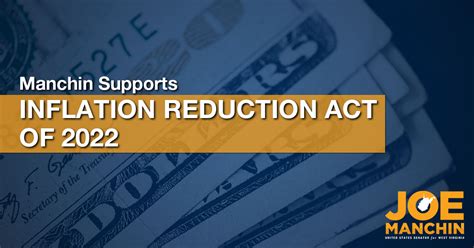Opinion by Conn Carroll
The Inflation Reduction Act does a lot of things. It raises taxes on almost everyone, including those who make less than $10,000 a year. It gives billions to the wealthy to help them buy electric cars. It raises taxes on those producing energy on public lands. And it gives tens of billions to health insurance companies.

What it doesn’t do, however, is reduce inflation. In fact, according to the University of Pennsylvania, it raises inflation through 2024. “The Act would very slightly increase inflation until 2024 and decrease inflation thereafter,” the Penn Wharton Budget Model staff write. “These point estimates are statistically indistinguishable from zero, thereby indicating low confidence that the legislation will have any impact on inflation.”
So why did Sen. Joe Manchin (D-WV) call his 725-page legislation “The Inflation Reduction Act” if it doesn’t reduce inflation?
It appears he is trying to cover up the fact that he caved to pressure from far-left activists to pass President Joe Biden’s Build Back Better agenda.
“Build Back Better is dead,” Manchin insisted to reporters this week. “Instead we have the opportunity to make our country stronger by bringing Americans together. I will do everything I can to usher in a new era of compromise and commonsense that will make America more energy secure, financially sound and a more united country for this generation and the next.”
Don’t expect that “new era of compromise” to start anytime soon. Democrats still plan to pass the Inflation Reduction Act through the Senate’s reconciliation process with only Democratic votes. No Republicans have signed on to the bill’s massive tax hikes and none are expected too.
Democrats still aren’t even sure they will have all 50 of their own members on the bill, as Sen. Kyrsten Sinema (D-AZ) still has not said whether she supports it. Additionally, Sen. Dick Durbin (D-IL) tested positive for COVID-19 Thursday. While he is expected back later next week, Democrats cannot start advancing the reconciliation process on the floor until they have all 50 votes in Washington. Unlike the House, the Senate never allowed proxy voting.
Raising taxes on Americans by $739 billion a week after the Commerce Department confirmed that the economy shrunk for the second consecutive quarter is a risky bet for Democrats. If the economy continues to contract, Republicans will point to the inaptly named “Inflation Reduction Act” as a big reason why.

